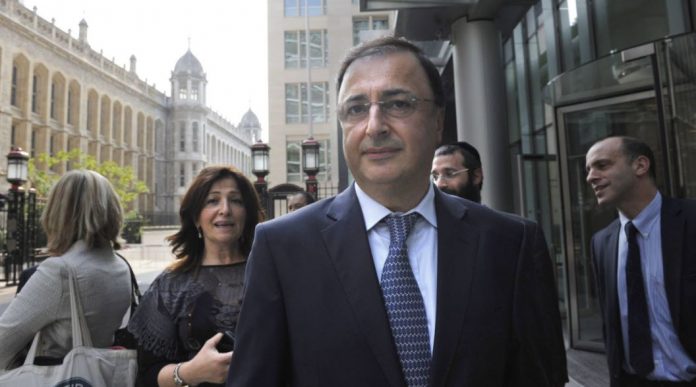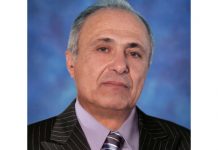Leviev is best known for having cracked the world diamond market monopoly of the De Beers cartel in the 1980s, and for real estate holdings and construction deals from Wall Street to the West Bank
If the name of Lev Leviev, which has come up in recent reports about the investigations of Jared Kushner’s Russian connections, rings familiar, it’s not without good reason. Leviev, who was born in the Soviet Uzbek Republic, and immigrated to Israel at age 14, has been one of the world’s most successful and diversified businessmen for years. He is best known for having cracked the monopoly over the world’s diamond market held by the De Beers cartel back in the 1980s, and for real estate holdings and construction deals in locations ranging from Wall Street to the West Bank. With the encouragement of the Lubavitcher Rebbe, Menachem Mendel Schneersohn, in the late 1980s, Leviev had the impeccable timing to begin doing business in the Soviet Union shortly before it crumbled, and he took advantage of that political watershed to become a major player in the Wild West that was the Russian economy in the succeeding decades. At the same time, he became a close friend of Vladimir Putin and also a Jewish philanthropist unequaled since the legendary Moses Montefiore.
Unlike Kushner and his father-in-law, President Donald Trump, Leviev was not born to wealth, but apparently from a young age, he possessed a strong urge to attain it. Born on July 30, 1956, in the Uzbeki capital of Tashkent, Leviev grew up in a traditional Bukharian-Jewish family that immigrated to Israel in 1971. Clever rather than studious, Leviev left his Kiryat Malachi yeshiva after just two months, and got a job in a diamond-polishing shop, where, through persistence, he had his senior colleagues teach him all 11 stages of diamond cutting, something a single individual does not generally have the opportunity to master. He was supposedly aided in the delicate art of diamond cutting by early training from his father in ritual circumcision.
Highly ambitious, Leviev began making his way up quickly in the De Beers hierarchy, but that wasn’t good enough. What he really wanted was to break the cartel’s stranglehold on the world’s diamond market. This he did by cutting deals at strategic moments with the governments of both Angola and Russia, both with vast unmined diamond reserves.
Having grown up in the Soviet Union, Leviev was trepidatious about returning to its successor states to do business, but he was encouraged to do just that during a late 1980s visit with the Lubavitcher Rebbe, who also warned him not to forget to help his fellow Jews. Long drawn to Chabad, Leviev then proceeded to become one of its most generous supporters; in a 2007 interview with The New York Times, he did not dispute that he had contributed some $50 million to Chabad educational and welfare institutions across the former Soviet Union.
At the same time, Leviev became the world’s biggest cutter and polisher of diamonds. He accomplished this as successfully as he did, wrote Zev Chafets in that 2007 Times article, in part because of his businesses’ “vertical integration. He mines the diamonds in Angola, Namibia and Russia, cuts and polishes them, ships them and sells them, wholesale and retail.”
In 1996, Leviev picked up the Africa-Israel holding company, whose fields included real estate and construction, from Bank Leumi when the bank was ordered by a court to divest of its non-financial businesses. The price: $400 million. By 2007, its estimated value was $7 billion. The following year, however, Africa-Israel Investments’ debt was estimated at some $5.5 billion, and it began to shed properties.
Suffice it to say that Leviev has retained control of Africa-Israel, whose holdings today include energy, steel production, hotels, and a number of fashion designers. Along the way, he has been criticized, and his businesses boycotted, attacked for massive construction projects in several different West Bank settlements; his bid a decade ago to become the operator of Israel’s first privately owned prison was stymied by the Supreme Court; and he has been dogged by accusations of the worst types of abuse at his mines in Angola.
This week’s news stories don’t link Leviev with specific accusations; rather, they indicate a number of business and social relationships that connect him to Vladimir Putin and Kremlin-related businesses, as well as to the Trump Organization. Leviev was a business partner of Prevezon Holdings, the Russian firm that was accused of money-laundering, and that, after it was represented by Natalia Veselnitskaya, got off with a $6 million slap on the wrist. The Prevezon scam had been exposed in 2009 by Russian whistleblower accountant Sergei Magnitsky, who a short time later died in a Moscow prison under suspicious conditions. It was his death that led to the American passage of the sanctions – in the form of the Magnitsky Act – that Veselnitskaya said she was lobbying to have cancelled when she met with Donald Trump, Jr., Jared Kushner and others at Trump Tower last summer. It was to avenge the Magnitsky sanctions that Putin in 2012 abruptly prohibited American citizens from adopting any more children from Russia; readers will remember that Trump has said that “adoptions” was the subject of his off-the-record second conversation with Putin at the G-20 meeting in Hamburg two weeks ago. Now, the Justice Department’s decision to settle with Prevezon last May is likely to come under renewed scrutiny by investigators in the U.S.
The Guardian this week reported on several joint business ventures that Prevezon undertook with Leviev’s Africa-Israel Investments, both in the U.S. and Europe, and which were later alleged to be vehicles for money-laundering by Prevezon.
In 2015, the Kushner real-estate company purchased four floors of the old New York Times building, on West 43rd St., for $295 million. The seller was Lev Leviev’s U.S. branch of Africa-Israel Investments, in partnership with Five Mile Capital. According to the Washington Post, Kushner took a loan from Deutsche Bank in October 2016 – a month before Election Day – to refinance the Manhattan property, which was now valued at $74 million above what he paid for it a year earlier.
Deutsche Bank has been of interest to a variety of different federal investigators for its involvement in a Russian money-laundering scheme, and it settled at least one related case with the U.S. Federal Reserve two months ago.
credit to haaretz.com














